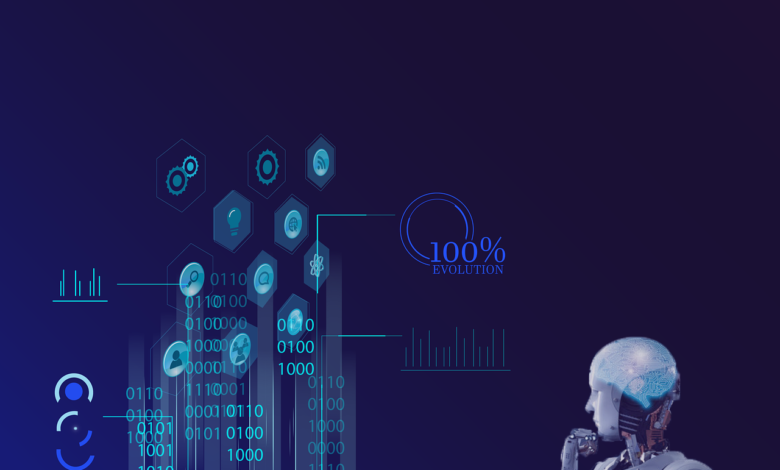‘Legal Tech Lists’: 5 Ways Generative AI Will Change Legal Marketing

Ed. note: This is an installment in the “Reference Manual of Legal Tech Lists Vol. II,” an eBook set for release this summer.
In any competitive industry, staying ahead of the competition requires innovative approaches to marketing.
Generative Artificial Intelligence (AI) is poised to revolutionize marketing in the legal industry.
This game-changing technology has the potential to transform the way law firms reach and engage with their target audiences.
No. 1: Content Creation and Personalization
Generative AI excels in content creation, generating high-quality and contextually relevant materials.
In legal marketing, where conveying complex information in a simple way is crucial, AI can streamline the content creation process.
Legal marketers can leverage AI to automate the generation of blog posts, articles, and social media updates, ensuring a consistent and informative online presence.
And, in the very near future, generative AI will be able to enhance personalization.
By analyzing data on client preferences, industry, and search patterns, generative AI systems will tailor content to specific audiences. This personalized approach will not only improve engagement but will also help establish a deeper connection between law firms and clients.
No. 2: Social Media Campaign Optimization
Social media continues to be a powerful tool for legal marketing, but managing and optimizing campaigns can be time-consuming. Generative AI can streamline this process by analyzing user behavior, engagement patterns, and trending topics to optimize social media campaigns.
AI algorithms can identify the most effective posting times, the types of content that resonate with the target audience, and even suggest relevant hashtags and keywords.
This data-driven approach ensures that legal marketing efforts on social media platforms are not only visible but also tailored to capture the attention of the intended audience.
No. 3: Chatbots for Client Interaction and Lead Generation
Generative AI-powered chatbots are becoming increasingly sophisticated, providing a seamless and efficient way for law firms to interact with clients, generate leads, and deliver customized content.
These chatbots can be integrated into firm websites to provide instant responses to client inquiries, schedule appointments, and direct inquiries to the right channels or practices.
For legal marketing, this means a 24/7 virtual presence, enhancing client satisfaction and engagement.
Chatbots can qualify leads by collecting essential information and contact details, allowing legal marketers to follow up with potential clients more effectively.
No. 4: Predictive Analytics
Understanding market trends and potential client needs and being proactive in suggesting programs and activities to practices is crucial for marketing and business development success.
Generative AI, with its ability to analyze vast amounts of legal data, can offer valuable insights through predictive analytics. By examining historical data, current news, legislation and relevant legal developments, AI can assist legal marketers in forecasting possible trends in the market.
This predictive capability enables law firms to adopt a proactive marketing strategy. This data-driven approach also allows for more targeted sponsorships, advertising, and messaging, ensuring that marketing efforts resonate with the specific needs and concerns of potential clients.
No. 5: Revolutionizing the Marketing Technology Stack
Generative AI has the potential to disrupt and replace several traditional marketing technology applications.
The use of independent or siloed CRM systems and experience management systems may be replaced entirely with a generative AI application that uses data sets from disparate firm systems to deliver a 360-view of a firm’s clients and prospects.
Email automation and campaign management can be enhanced by the predictive analytical capabilities of generative AI. Data from ERM systems can be better utilized and analyzed. There is no limit right now to the potential use cases that generative AI will disrupt.
As developments and enhancements to generative AI are outpacing legislation and regulation, legal marketers must navigate a complex web of ethical considerations and regulatory compliance issues.
Ironically, generative AI can assist law firms in ensuring that their marketing materials adhere to industry regulations and ethical standards. By analyzing legal codes, bar association guidelines, and historical cases related to marketing practices, AI algorithms can provide real-time feedback on the compliance of marketing content.
Generative AI is ushering in a new era for legal marketing. From content creation and personalization to predictive analytics and marketing tech stacks, the transformative potential of AI is reshaping how law firms go to market.
As the legal industry embraces these technological advancements, those who harness the power of Generative AI are likely to gain a significant competitive advantage.
As the Chief Marketing Officer at Lowenstein Sandler, and the President of the Legal Marketing Association, Kevin Iredell brings his extensive expertise to the forefront of generative AI discussions, helping organizations navigate the intricate legal landscape of emerging technologies. In addition to his speaking at industry conferences, Kevin has led multiple training and CLE sessions for the Association of Corporate Counsel (ACC) on legal and ethical considerations of generative AI for in-house counsel across the US.




